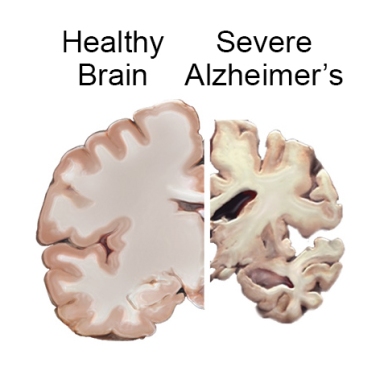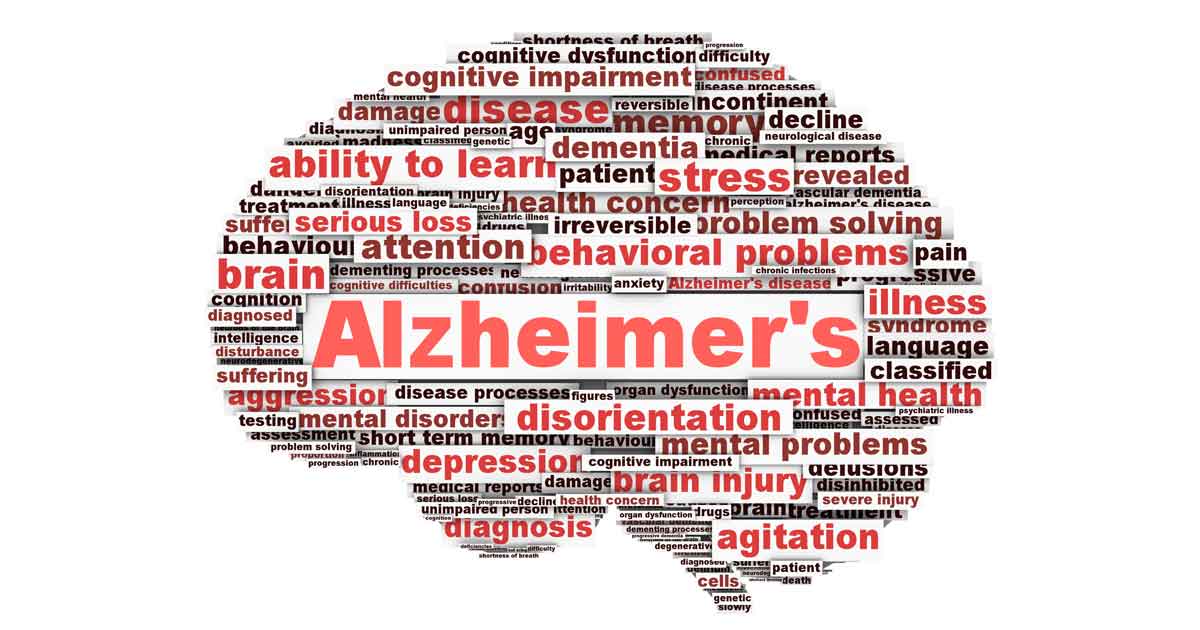Imagine yourself, waking up not knowing what to do next, or having no idea with respect to your daily routine. Going to the same place repeatedly without knowing why you went there. Losing track of time, day, month, people, seasons and, situations. Living a fragmented life where someone or you, feel aimless or directionless. Having tough time in performing activities of daily living as simple as bathing. Finding it difficult to take part in conversing with friends and family or carrying out an array of tasks! Unable to make simple decisions or finding it difficult to get back home without any cues, every single time. Forgetting your near and dear ones, forgetting important things related to them. Forgetting their birthday. Forgetting your own birthday.
Well put together, we cannot even imagine what a person with Alzheimer’s Disease goes through.
So what is Alzheimer’s Disease?
Alzheimer’s Disease is one where the condition of the individual deteriorates over time, destroying the memory and overall mental functions.
Dementia is referred to as a group of conditions characterized by of at least two brain functions. Various psychological, behavioral, cognitive, muscular, mood differences, difficulty in self-care, loss of motivation, etc. Alzheimer’s Disease is the most common cause of Dementia (approximately 70%).
It is a progressive neurological disorder, i.e., the condition worsens over time affecting the brain cells. Over a period of time, the brain shrinks and appears much smaller than the normal human brain. This can be viewed on MRI, PET and CT Scans. Adults over 60-65 years of age are affected with this.

Often seen signs are:
- Difficulty in memory and recalling recent events that have happened
- Difficulty in concentrating and planning a task
- Unable to make decisions
- Difficulty in recollecting the correct word
- Difficulty in making a judgement where one needs to use Visuo-Spatial skills. Example: Activities like the distance between two steps or climbing up and down the stairs
- Not knowing where they are.
- Losing track of the day, time, month, year.
- Difficulty in holding conversations.
- Forgetting a familiar travel path.
Speech-Language Pathologist and Alzheimer’s Disease
Populations that suffer from Alzheimer’s often face language, speech, and swallowing difficulties.
Communication difficulties like trouble in recalling a word, beating around the bush as one cannot remember the word (known as circumlocution), difficulty in understanding complex ideas, humor, sarcasm, asking for repetitions, subtle memory difficulty, etc., are seen in the early stages. As the condition worsens, the person may have difficulty in maintaining his conversational topic, forgetting the topic, repeating the same idea over and over again, reduced vocabulary, making grammatical errors in sentences, not realizing one’s mistakes are. In the final scenarios, the language is very guarded, difficulty in maintaining eye contact, reduced understanding of language, absence of speech, fragmented sentences can be seen.
Eventually the person’s mobility is restricted, severe behavioural changes ranging from extreme anger or violence are also seen. These patients also require constant care from the caretakers in the simplest of tasks. They can also be sent to Day-care centers, or in different homes available for these persons as the care takers also have a difficult time in managing persons with Alzheimer’s.
Various tests and examinations are done to know the status of the degree of difficulty in communication.
There is no curable treatment for Alzheimer’s disease. As a professional of communication disorders, we work towards providing as effective communication as possible for the longest period. Balance of mental, spiritual, physical, cognitive health, social relations, financial and legal management is essential. Quality of life and health care is an important key in helping these people cope with day to day activities better.
Giving them simple tasks, involving them in conversations, keeping a fixed routine for the person, outlining a schedule for them, labeling things, making sure that there is enough nutritional intake, giving a list of important contacts with photographs of the person , exercising various word and memory games, etc., can provide a good stimulation.
These exercises can help a person cope better with the disease. Exercising on the Speech, Language, and Swallowing aspects can also sometimes help in slowing down the progression of the disease. However, it does not stop the progression of the disease. Motivation of the care takers, family members and the person themselves also plays an important role in the overall management. Family and Care takers are equally important team members of persons suffering with Alzheimer’s Disease.
The Alzheimer’s and Related Disorders Society of India (ARSDI) is one of the main resources for dementia caregivers in India and is located in many metros in the country. Dignity Foundation also provides with Dementia Day Care Centers in Mumbai and Chennai. For further details, visit www.dementiacarenotes.in/resources/india.
You may fret as to what is wrong with the person, spouse, parent, grandparent or friend. You may also find it difficult to cope up with the individual.Sometimes you may not be able to share a difficulty you’re going through. There is degeneration of the neurons (brain cells) which affects the ability to comprehend emotions, making prudent judgements, etc, making it difficult to follow or fail to understand the emotion behind it. You can hold their hand and make them go through the tough times with more ease.
Results vary from person to person but we could use a little hope and turn the skies a bit blue for them.
Signing off for now.:)
References for images: https://www.google.co.in/search?q=alzheimer%27s+disease&biw=1366&bih=613&source=lnms&tbm=isch&sa=X&ved=0ahUKEwiV95johajPAhXLNI8KHdOEAPQQ_AUIBygC


Very informative…
LikeLiked by 1 person
Thank you so much!
LikeLike
Thanks for the awareness, yes very informative.
LikeLiked by 1 person
Well written.
LikeLiked by 1 person
Thank you so much!
LikeLike
Thank you so much, stay tuned!
LikeLike
Very informative. Keep up the good work.
LikeLiked by 1 person
Thank you so much, stay tuned!
LikeLike
Really well written. Thank you for sharing this with us. Very informative. 😀
LikeLiked by 1 person
Glad you enjoyed, stay tuned! 😀
LikeLike
Very insightful, great article 🙂
LikeLiked by 1 person
Stay tuned! 🙂
LikeLike
Very well written and informative. I know a lot more about Alzheimers than I did before reading this post. Keep it up!
LikeLiked by 1 person
Glad this post helped you to increase your knowledge about Alzheimer’s. Stay tuned!
LikeLike
Very well written article. Keep up the good work!
LikeLiked by 1 person
Thank you so much!
LikeLike
A good and informative article.
Good information put forth in a manner that is understandable to the common man who doesn’t have sufficient knowledge.
LikeLiked by 1 person
I’m glad this article helped. Stay tuned!
LikeLike
Very comprehensive. Looking forward to more posts !!
LikeLiked by 1 person
Thank you so much, will update soon!
LikeLike
Very informative and precise. Very well written.
LikeLiked by 1 person
Thank you so much, stay tuned!
LikeLike